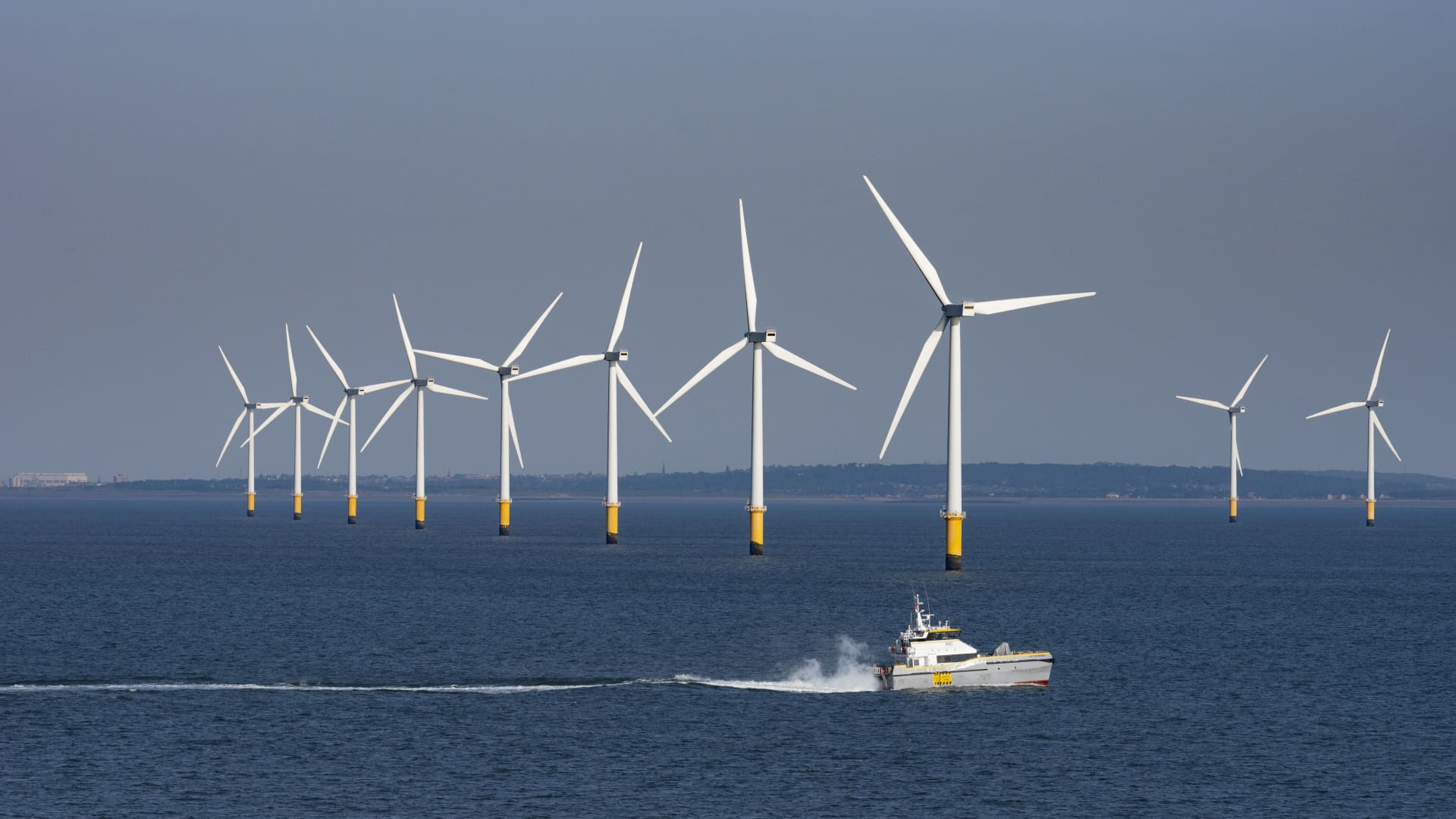
07 Feb Orsted exits several offshore wind markets, pauses dividend
Burbo Bank, Liverpool Bay, England, viewed from the sea turbines on Burbo wind farm off the UK coast.
Ucg | Universal Images Group | Getty Images
Danish renewables giant Orsted on Wednesday announced plans to cut jobs, pause its dividend payouts to shareholders and exit several offshore wind markets after a tumultuous year of rising costs.
Orsted, the world’s largest offshore wind developer, said it planned to take steps “to become a leaner and more efficient” organization following a year marked by “substantial challenges.”
These measures include a reduction of as many as 800 jobs worldwide, a pause for dividends for the financial years 2023 to 2025 and a retreat from markets in Norway, Spain and Portugal.
Shares of Orsted traded 1% lower at 11 a.m. London time (6 a.m. ET).
The Copenhagen-listed stock price has fallen more than 40% over the last 12 months, with the company beset by challenges facing the broader wind industry. Supply chain disruption and higher interest rates sent wind energy stocks tumbling last year.
“Despite a year with strong underlying business progress, 2023 marked a year with substantial challenges for Ørsted,” Mads Nipper, chief executive of Orsted, said in a statement.
Nipper said the company’s financial results had been “adversely affected” by impairments on U.S. offshore projects taken in the third quarter of 2023.
Orsted canceled two major offshore wind farm projects in the U.S. late last year, citing high inflation, rising interest rates and supply chain bottlenecks.
William Pettitt, offshore infrastructure construction manager with Orsted, steps inside a monopile at the EEW wind turbine manufacturing facility in Paulsboro, New Jersey on July 14, 2023.
The Washington Post | The Washington Post | Getty Images
Orsted said it was now targeting 35 to 38 gigawatts (GW) of power generation capacity by the end of the decade, a downward revision from its previous target of 50 GW.
Project cancelations and the phasing out of capital expenditure across the portfolio will result in roughly 35 billion Danish kroner ($5.05 billion) of capital expenditure relief in 2024 to 2026, the company added.
“We’ve revisited our portfolio to prioritise growth options with the highest potential for value creation and at the same time reduce risks in the development and execution of our projects,” Nipper said.
“We remain optimistic about the future of the renewable energy industry, and we’re confident we can be a key contributor in accelerating the renewable build-out in the years to come.”
